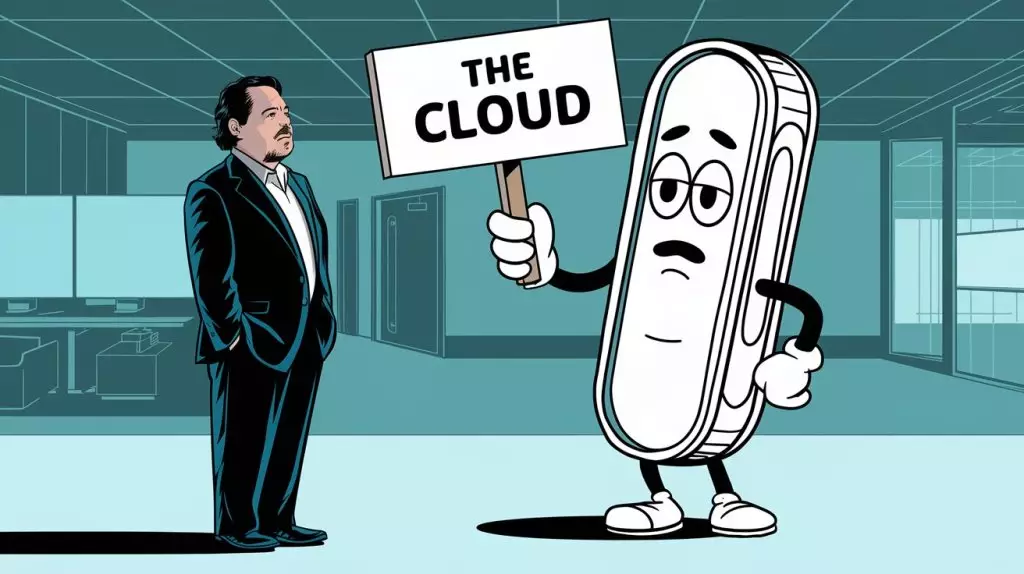In the ever-evolving landscape of artificial intelligence (AI), public figures frequently voice opinions that not only reflect their personal experiences but also could pivot the perceptions held by the industry at large. Recently, Marc Benioff, co-founder and CEO of Salesforce, made headlines when he sharply criticized Microsoft’s AI assistant, Copilot. His comments, shared via social media platform X, revealed his discontent with the functionality and accuracy of the Copilot application. This critique has introduced a potent dialogue on the effectiveness of AI tools and the impact of competitive rivalry in the technology sector.
Benioff’s specific disdain for Copilot—calling it “disappointing” and likening it to “Clippy 2.0”—is fueled not only by professional rivalry but also by ongoing public sentiment towards AI implementations. Clippy, Microsoft’s anthropomorphic office assistant from the late 1990s, has become emblematic of poorly executed user assistance, suggesting that history may be repeating itself with Microsoft’s latest foray into AI. Copilot, which leverages OpenAI’s advanced GPT models, was initially launched as an auxiliary tool for the Office 365 suite before expanding its functionalities across various platforms. However, despite these technological advancements, Benioff’s comments imply that the user experience still lacks the intuitive support one might expect.
As AI technology matures, the bar for user expectations rises. In Benioff’s view, Microsoft has fallen short. He asserts Copilot fails to deliver on crucial elements like accuracy and utility, potentially leading to a disappointing user experience reminiscent of earlier, less refined software. In an industry where effectiveness can significantly influence brand loyalty and customer retention, such a critique resonates deeply.
Though the criticism may seem biased—coming as it does from the CEO of a rival company—Benioff’s remarks highlight underlying tensions prevalent in the tech ecosystem. His focus on the shortcomings of Microsoft’s AI products raises questions that extend beyond mere competition. With Salesforce rivaling Microsoft in areas such as customer relationship management (CRM) and collaborative platforms, Benioff’s engagement in this public discourse positions him as a vigilant advocate for his own company’s vision and offerings.
Interestingly, Benioff has expressed conflicting sentiments regarding AI’s overarching potential. He recently suggested that much of the excitement surrounding AI’s capabilities is “oversold,” a stance that runs counter to the high expectations set by many of his peers within the industry. This duality presents Benioff as both a skeptic and an advocate; he argues that while AI can transform business processes, not all implementations are created equal. His contrasting perspectives raise significant concerns about how businesses gauge the utility of AI tools, fostering a dialogue on the necessity for quality and efficacy in AI solutions.
Benioff’s critiques of Microsoft’s Copilot serve as a crucial reminder of the importance of delivering valuable and reliable AI solutions. As stakeholders in the tech industry navigate an increasingly competitive landscape, the divergence in product effectiveness becomes a pivotal point of discussion. The ongoing discourse surrounding AI tools—poised between potential and reality—urges industry leaders and developers alike to take a measured approach towards innovation.
Ultimately, the reactions from industry experts and consumers will dictate how these narratives unfold, shaping the future of AI applications. The call for higher standards and demonstrable results in AI functionality will only grow louder, and the industry as a whole must respond to ensure that technological advancements do not replicate the pitfalls of the past. The efficacy of AI tools like Copilot will play a substantial role in how organizations measure success and drive adoption in a rapidly advancing field. As Benioff continues to navigate this complex landscape, his emphasis on performance will likely resonate with many businesses seeking more reliable solutions, drawing a clear line between hype and authentic value in the realm of artificial intelligence.


Leave a Reply
You must be logged in to post a comment.